We Need You!
Volunteer to be part of our winning campaign! Click the button to learn more ways to help.
See our library of Letters to the Editor!
Click one of the links below to see letters to the editor recommending our candidates.
Events
DTC Monthly Meeting – Nov 2025
November 13 @ 7:30 pm - 8:30 pmDTC Monthly Meeting – Dec 2025
December 11 @ 7:30 pm - 8:30 pm
Get Involved
There are many ways to get involved with the Ridgefield DTC!
Join us at our headquarters!
We’re open at 66 Grove Street on weekends from 12pm-5pm.

Ridgefield Democrats: Good for Ridgefield
Good governance doesn’t just happen. It takes dedicated, talented people willing to serve, and it takes your support to keep the Democratic leadership that is working for Ridgefield. Under Democratic leadership, Ridgefield has flourished and continues to move forward.
Ridgefield schools are among the best in the state. To keep them strong, we need Kathryn Graf, Scott Sigel, Angela Rice, and Tina Malhotra on the Board of Education. Strong schools attract new families and boost property values, and our team brings unmatched expertise and personal investment. As parents, professionals, educators, and leaders, Graf, Sigel, Rice, and Malhotra will deliver innovation, responsible budgets, community outreach, and steady leadership.
Ridgefield’s finances are managed impeccably. Re-elect Board of Finance Chair Mike Rettger and Andrew Okrongly, experts in finance, risk management, and strategic planning. They will continue the Board’s proven track record of delivering high-quality services while keeping tax rate growth below inflation and preserving Ridgefield’s AAA bond rating.
Ridgefield’s natural resources are in good hands with our Democratic-led Inland Wetlands Board. Re-elect Noah Berkowicz, Keith Carlson, and David Smith, passionate conservationists and professionals who balance thoughtful growth with safeguarding our ecosystems. Thanks to their leadership, Ridgefield’s water quality and treasured landscapes remain protected.
Ridgefield is one of the safest towns in America. Expanding Democratic leadership on the Board of Police Commissioners will ensure every resident has the protection and safety we deserve. Current Chair Sharon Dornfeld and Stephen Riebling bring legal expertise, ethical leadership, and decades of public service. They are committed to strengthening the bond between residents and police through accountability, transparency, and compassion.
Led by First Selectperson Rudy Marconi, the Board of Selectpersons keeps Ridgefield’s budget on track, balancing essential services with reasonable costs. Under the Democratic leadership of incumbents Elizabeth DiSalvo, Joe Dowdell, Benjamin Nissim, and Mariah Hutchings Okrongly, the Planning & Zoning Commission ensures smart growth that protects open spaces and preserves Ridgefield’s small-town character. Democratic ZBA incumbent Joe Pastore, teamed with Mike Santini, will continue the ZBA’s tradition of fairness. And BAA incumbent Andrew Sternlieb makes sure every resident’s voice is heard.
Ridgefield Democrats deliver results.
A vote for Democratic leadership is a vote for excellent schools, a safe community, sound finances, and protected natural resources.
Starting October 20th, do your part to keep Ridgefield strong: Vote Row A, all the way.
It’s Good for Ridgefield.
Letters to the Editor: Democratic Slate & Voting
Read more letters!
Click one of the links below to find more letters to the editor.
Letters to the Editor: Board of Education
Read more letters!
Click one of the links below to find more letters to the editor.
Letters to the Editor: Board of Finance
Read more letters!
Click one of the links below to find more letters to the editor.
Letters to the Editor: Inland Wetlands Board
Read more letters!
Click one of the links below to find more letters to the editor.
Letters to the Editor: Board of Police Commissioners
Read more letters!
Click one of the links below to find more letters to the editor.
Board of Education
New – Just added!
School Issues Questions From “Ridgefield Parents For Quality Education”
BOE Candidate Responses
Kathryn Graf
Technology & Student Devices
Cell phone use in schools remains a topic of community concern. Are you familiar with the current cell phone policy at RHS, and do you support it? If not, what specific changes or restrictions would you propose?
Yes, I’m familiar with and support Policy 5131.8 across all grade levels at RPS, including Ridgefield High School. I understand that the BOE Policy Committee plans to revisit the Grades 9-12 portion of the policy during the November meeting at the earliest. I agree that it is critical to allow time for the administration to conduct additional diligence and gather further feedback from students, staff, and families.
I’m interested to hear the Board’s revised draft of this policy, and if the issue is still being considered after November 4th, I hope to be at the table to participate in further policy development, along with discussion and public vote. I believe the policy should reflect the best interests of our students, with their health and well-being at the heart of the decision-making process.
School Safety & Security
Since Sandy Hook, RPS has implemented several measures to enhance school safety. What is your position on allowing firearms in schools, carried by School Security Officers (SSOs), Resource Officers (SROs), or other employees? Do you support adding a dedicated, armed SRO to every school in the district (6 more)? Should parents be informed which staff members are authorized to carry weapons?
I really appreciate the Board’s decision over the past couple of years to bring security in house. It’s made a big difference having familiar, experienced security staff in our schools every day because our security staff know our buildings, our students, and our community.
I also understand that a lot of the discussion around school safety happens in executive sessions, and that’s for good reason. Not everything should be public when it comes to keeping our schools secure. From what’s been shared publicly, it’s clear the Board of Education, administration, and local law enforcement are working closely together to make sure we’re doing everything we can to keep students and staff safe.
Susie’s communication on October 22 was especially insightful and thorough. It reflected a strong commitment to transparency at an appropriate level where she shared meaningful information without compromising privacy or security.
As for the idea of arming school staff or adding more armed officers, it’s a serious topic that deserves careful thought, community input, and a clear understanding of the risks and benefits. Any additional investment in security, for staffing or other measures, should be supported by data, best practices, and what’s proven to keep schools safer, not just what feels like it may help. I think data, best practices and real-world evidence can and should be
discussed in public so long as those discussions wouldn’t compromise the safety of our district. I’m committed to decisions that reflect expert guidance, data, and the values of our community.
Health & School Start Times
The BOE has historically supported aligning school schedules at all levels with research on healthy start times, but leadership transitions and implementation costs have stalled action. How important is achieving healthy start times across all grade levels within your goals for this term? How much district funding or budget reallocation would you be willing to support to implement this change?
Aligning school start times with research on student health and performance is something our community has been discussing for years. Science is clear. Later start times, especially for adolescents, support better sleep, mental health, and learning. Although many districts have made the change and some states have mandated it, we know that change is challenging.
There are many upstream and downstream issues to consider: transportation, before-and after-school care, family schedules, athletics, budget impacts, and more. This isn’t a decision the Board of Education can make alone. A successful path forward requires broad community input and collaboration with families, staff, experts, and other town boards, supported by robust study of proven models in other districts and leadership from Susie and her team.
Like any important initiative, implementing healthy start times will cost money and more funding requires careful thought. On this important issue, I believe there is room to be creative and find smart ways to make the most of the resources we already have. On the Board, I plan to use my accounting and compliance background to take a fresh look at our school budget so we can consider initiatives like this that benefit all children, while maximizing value. I look forward to participating in a thorough process that incorporates data, experts, research, community input and financial impact.
District Priorities & Fiscal Approach
What unmet needs do you see in the district, and how would you advocate for them? What would guide your decisions on reallocating or reducing programs or expenditures to fund higher-priority initiatives?
I’m so glad you asked. This is my sweet spot where I know I can add significant value to the Board.
The Board of Education oversees about $120 million, roughly 70% of the district’s $175 million budget. But this is about more than numbers. It’s about supporting our students, families, and the future of our community.
With such a significant investment comes a responsibility for accountability and wise resource management. With me on the Board of Education, you can count on my 110% commitment to using my financial compliance experience to ensure resources support learning. I’m comfortable navigating complex financial information and ensuring the public receives transparent financial reporting. You’d be getting a level-headed person who doesn’t get alarmed by the loudest voices and stays grounded in facts, thinks big picture without getting lost in the weeds, and prioritizes with discipline.
Watching our budget meetings, it’s challenging to follow the information presented. Pages and pages, and hours and hours of discussion make it difficult for anyone, whether Board members or the public, to fully digest what’s being shared. The budget should be clear, transparent, and easy for our community to understand. Transparency isn’t just about sharing numbers; it’s about presenting them in a way that helps everyone make sense of the decisions being made.
I intend to work closely with district administration to make every dollar count. I will meet with Jill on the financial side and Karen on the personnel side to learn more about our contracts and their return on investment. For example, we should be evaluating whether bringing services in house or outsourcing them provides the best value considering efficiency, quality, and cost. I would dig deep into the contacts to ensure our district gets the strongest outcomes for our investments. Any budget savings we realize should be re-invested in our programming, staff, curriculum and facilities.
Technology Integration & Investment
How do you assess RPS’s current use of classroom technology? How would you prioritize technology investments in the budget? Do you support annual Chromebook spending of approximately $120,000 for just elementary school Chromebook purchases as part of classroom instruction? Would you be in favor of creating a dedicated technology class (special) for elementary grades?
I support the use of elementary classroom technology when it meaningfully enhances learning, especially when it enables individualized instruction that meets students where they are. Every student deserves the opportunity to succeed. When used intentionally, technology can be a powerful tool for differentiation, engagement, and building critical skills.
That said, I believe that in elementary school, children learn best through hands-on experiences where they can build, experiment, and create. Technology should complement, not replace, those opportunities. I’d like to see more project-based learning that engages children’s senses and imagination, supported by a curriculum that builds on student interests and skills, social and critical thinking development, and the joy of discovery.
Therefore, in terms of budgeting, I believe technology investments should be guided by their direct impact on student learning. I’m interested in exploring the cost-benefit of a shared device model like using devices during a dedicated IT or science class if it were offered as a special.
Scott Sigel
Technology & Student Devices
Cell phone use in schools remains a topic of community concern. Are you familiar with the current cell phone policy at RHS, and do you support it? If not, what specific changes or restrictions would you propose?
Pervasive cell phone use in schools has well-documented consequences across academic, social, and emotional well-being. The Board of Education needs to evolve the phone policy with consideration of, (a) the most up-to-date research, (b) values of the community, (c) safety and security protocols, and (d) the prospect of overindexing on “screens” as may be derived from legacy COVID policy.
The current policy at the high school focuses on improving academic outcomes with reportedly successful implementation, however there are concerns it falls short on considerations for social and emotional well-being. As discussed in a recent Board meeting, community sentiment reflects satisfaction from high school parents on current policy, but general dissatisfaction from K-8 parents. Given the bell-to-bell ban in place for elementary and “away all day” for middle school students, I believe it would be prudent to consider an evolution of policy towards a more restrictive position year over year. Why? This allows for an incremental approach to quantify the effects, successes, and challenges of the recently established policy during this academic year. It affords the district the time to consider and evaluate practical means of implementation, or alternatives, with input from peer districts and other public education leaders. Furthermore, an incremental approach maintains consistency for students, as policy changes can roll during school year changeovers.
Studies and surveys have found that higher cell phone use among students showed patterns towards lower GPA and higher anxiety compared to low-use peers. I am generally of the position that restricting screen use is not a prohibitive action, rather that it creates more opportunity for students to thrive and gives them the space to focus on the critical skills and behaviors that will best serve them for life after RPS.
As a father to two young children (6 and 3), and as a CEO of a technology company, I believe in using technology intentionally as a tool vs a crutch. Reducing phone dependency lends to better performance and stronger social connections. So long as safety and security measures are considered appropriately, we can evolve phone policy thoughtfully.
School Safety & Security
Since Sandy Hook, RPS has implemented several measures to enhance school safety. What is your position on allowing firearms in schools, carried by School Security Officers (SSOs), Resource Officers (SROs), or other employees? Do you support adding a dedicated, armed SRO to every school in the district (6 more)? Should parents be informed which staff members are authorized to carry weapons?
Student safety must continue to be the Board’s top priority with Board members being proactive and resolved in their commitment to safe schools. Under democratic leadership, the district made several improvements to safety measures including additional personnel and bringing resources in-house. I support additional full-time resources on a per school basis to increase the visibility and protective measures that come from dedicated SSOs.
That said, I am currently opposed to adopting a policy that would add firearms to SSOs or SROs. Known safety experts, both in-town and published research, have cited the benefits of holistic safety solutions that involve administration, teachers, and staff in appropriate response measures. This should include coordination with the Parks Department as some of the playgrounds and school perimeters fall under their remit. Conversely, reviews on policy allowing armed staff in K–12 schools across the US found limited evidence that those policies reduce school shootings or injuries. Instead research has shown that introducing armed staff led to heightened anxiety and lower perceived safety.
I support security staff increases and protective measures such as ballistic glass, but based on current data, research, and evidence from other districts, I believe arming staff with weapons will have more negative consequences than protective benefits we can accomplish through other means that look at the whole picture of risk vectors. It’s regrettable we have to discuss such an awful topic but as a father of two young ones, I take it as seriously as any other loving, devoted parent.
Health & School Start Times
The BOE has historically supported aligning school schedules at all levels with research on healthy start times, but leadership transitions and implementation costs have stalled action. How important is achieving healthy start times across all grade levels within your goals for this term? How much district funding or budget reallocation would you be willing to support to implement this change?
Ridgefield is ready to evolve its policy on school start times and it’s time to get started. Beyond the concerns from parents and students, decades of research shows that later start times for middle & high school students often lead to increased sleep duration, improved attendance, reduced tardiness, improved grades, better attention, and fewer motor vehicle incidents among teen drivers. Notably, Massachusetts is considering a state-wide policy change after seeing success at a town level and California has already instituted a statewide policy.
I believe we should modify school start times and I will push to get this on the agenda for Board discussion if I am elected. Sitting in a CEO seat, I oversee significant operational changes and look deeply at details around communications, coordination, and costs. I hope to bring these same executive skills to the Ridgefield Board of Ed to get the job done.
I would support setting aside up to 0.5% of the total district operating budget as a dedicated budget reallocation for the planning, pilot phase, and transitional costs of the schedule shift. That level of funding would enable a routing and fleet study (leveraging the existing transportation budget), incremental bus-schedule adjustments or additional runs if needed, adjustments to athletics/after-school program scheduling, and a one-year pilot monitoring period to phase the change gradually over two school years (assuming the pilot outcomes support it). I believe a modest reallocation using the current Transportation budget and phased implementation allows us to support student health and productivity while being fiscally prudent.
District Priorities & Fiscal Approach
What unmet needs do you see in the district, and how would you advocate for them? What would guide your decisions on reallocating or reducing programs or expenditures to fund higher-priority initiatives?
When it comes to reallocating or reducing programs, my decisions will be guided by three principles: evidence, equity, and impact.
1. Evidence: rely on measurable student outcomes and aggregate data over single anecdotes.
2. Equity: ensure that reductions don’t disproportionately affect vulnerable student populations.
3. Impact: determine whether dollars spent directly supports instruction, teacher effectiveness, or future-ready skills.
Artificial intelligence is upending traditional careers and day-to-day living. It will be the most impactful change to our society seen for generations. I see this daily as a CEO in the technology industry and I constantly think about how to develop and provide new resources for my own team on a constrained budget. First, the district needs to be more proactive in its approach to A.I. through teacher and professional development, as well as guiding students to use paradigm-shifting technology as a tool vs a crutch. Second, the BOE and district should go further to think more broadly about alternative pathways because AI drastically alters the work landscape our graduates will face.
I would push the district to draft a strategy that leans into the future-ready skills our students need: more critical thinking and problem solving, adaptability and agility, data literacy and interpretation, and developing growth mindsets in students that positions challenges as opportunities.
The rising costs of college and the declining entry-level opportunities for highly educated graduates demand that we prepare our students with practical skills that serve every type of student. We should explore piloting pathway programs that introduce more trade skills, also expand and formalize a more robust internship program to expose students to skills and life across technology, medical, agricultural, media fields and more.
Another unmet need is elementary world language. Although the programming is there and is ramping up, the pace of development has left our district behind in this area for years. I’d support a more robust program that boosts world language development in the early grades. Board-to-parents dialogue and transparency is another unmet need where I want to dig in. The newly formed Outreach Committee is a great start, and I look forward to working on other methods for productive, two-way discussion.
Overall, I would like to see more forward-thinking vision about curriculum and programming. One example: Ridgefield is surrounded by a multitude of ecosystems, open space, agriculture, and waterways that make our town unique. We should be thinking about how our rich natural surroundings could be integrated into our curriculum when there are bodies of research speaking to the benefits of working beyond the classroom environment.
Generally speaking, I believe we should be guided by a visionary, creative approach to curriculum and extracurriculars that optimizes for a thriving student population. From there, the Board needs to work hand in hand with the administration towards what’s fiscally practical and reasonable; sometimes that will mean modest budget increases but also the disciplined work of finding areas that aren’t delivering enough value to students.
Technology Integration & Investment
How do you assess RPS’s current use of classroom technology? How would you prioritize technology investments in the budget? Do you support annual Chromebook spending of approximately $120,000 for just elementary school Chromebook purchases as part of classroom instruction? Would you be in favor of creating a dedicated technology class (special) for elementary grades?
As a father of a 6 year old, I’m cynical about the Chromebooks I see in elementary classrooms, even as a technology executive myself. Recent research from the National Academies of Sciences emphasized that the key predictors of technological proficiency derive from reading fluency, problem-solving persistence, and executive function; specifically not early device familiarity. Devices like laptops should be integrated with purpose, not just for access. How technology is used matters far more than how often.
I would be critical of additional Chromebook spend for constant classroom use, and more in favor of dedicated technology labs for applied learning. I’m aware that some standardized testing requires laptops and does fall into consideration for relevant policy.
I believe we need to work toward methods that build digital fluency (knowing when and why to use technology), not just digital exposure. Many high-performing, tech-forward districts have already shifted to a “low screens, high cognition” model at the elementary level. This includes gradual introduction of devices for specific projects (Grades 3-4), while maintaining
screen-free, core analog curriculum across reading, writing, math reasoning, and discussion. Dedicated enrichment blocks or separate technology labs for latter grades can integrate coding/prompting, digital art, or robotics in applied ways. Teachers should continue to receive specific professional development on when to use technology, to preserve focus, critical thinking, and social collaboration. I’d like to see the savings realized if we shift away from the elementary Chromebooks be spent on other more pressing needs. I see the budget as a flexible blueprint that’s probed and held accountable throughout the year. The Board needs recurring reporting from the administration to be more prepared for the following year’s budget development. How are the investments working? What are the metrics for success? This is the expectation of other Boards and Ridgefield deserves the same standards of excellence. As an executive, I’m eager to bring my own Board discipline and accountability to serve our schools and community.
Angela Rice
Technology & Student Devices
Cell phone use in schools remains a topic of community concern. Are you familiar with the current cell phone policy at RHS, and do you support it? If not, what specific changes or restrictions would you propose?
I am familiar with the current policy, and I do support it. I would be interested in exploring further restrictions to include all academic spaces, not just classrooms, at least for underclassmen. To clarify, I would like to explore whether cell phone use could be limited only to non-academic spaces like the student center, so that students are not tempted to get on phones in the library or study rooms.
Student mental health is a complex issue that needs to be viewed holistically. Cell phones are a part of the mental health picture, but removing students’ access to phones alone is not going to solve a much more complex problem. While I do agree with the science around cell phone addiction, and agree that restrictions to cell phone use at RHS were (and are) needed, I also understand our responsibility to give students the tools to learn to self-regulate. There are many practical reasons why students use their phones during the day, particularly juniors and seniors. With that in mind, a tiered approach to restrictions could also be a valuable consideration.
Finally, if I get the opportunity to serve on the board, I will absolutely want to hear from current parents, students, and teachers on this issue, as well as mental health experts, before finalizing my stance.
School Safety & Security
Since Sandy Hook, RPS has implemented several measures to enhance school safety. What is your position on allowing firearms in schools, carried by School Security Officers (SSOs), Resource Officers (SROs), or other employees? Do you support adding a dedicated, armed SRO to every school in the district (6 more)? Should parents be informed which staff members are authorized to carry weapons?
This is an extremely complex question. In general, I do not support the idea of more guns in schools. I am of the mindset that increasing the presence of firearms will shift the culture in ways that may be difficult to quantify, but will absolutely be felt. Furthermore, the research on this topic does not conclusively indicate that armed security is an effective deterrent in mass shootings.
All of this being said, I have lived through a great deal of change in terms of how security is handled at RPS, and all of the changes that have been made so far, under our current Head of Security, Mr. Zabin, have been positive from my perspective. I acknowledge that I do not have all of the information, having not been privy to security discussions in executive session, and I am inclined to carefully weigh recommendations made by Mr. Zabin and his team with data from experts who have studied the matter.
Health & School Start Times
The BOE has historically supported aligning school schedules at all levels with research on healthy start times, but leadership transitions and implementation costs have stalled action. How important is achieving healthy start times across all grade levels within your goals for this term? How much district funding or budget reallocation would you be willing to support to implement this change?
My personal viewpoints absolutely align with the science behind healthy start times. Along with cell phones and social media use, achievement culture, and general discord in our society, sleep is absolutely part of the mental health picture for our teens, and as such, healthy start times is an issue the board will absolutely need to examine.
I know from watching past debates on this topic that the issue is complex and would require a great deal of fiscal investment. I am interested to see if there are creative solutions that haven’t yet been explored on this topic. For example, could we take a look at making FLEX optional for our high school students? Would this be a possible interim step that could be taken while thoughtfully weighing budgetary implications and logistical challenges to making the day start later?
I would like to have more information about what could reasonably be cut from the school budget in order to have more flexibility to make a substantive change to start times without a significant burden to taxpayers. All of that being said, our students’ mental health is absolutely my number one priority, and as such, this is an issue that I will not ignore.
District Priorities & Fiscal Approach
What unmet needs do you see in the district, and how would you advocate for them? What would guide your decisions on reallocating or reducing programs or expenditures to fund higher-priority initiatives?
Student mental health, wellness and belonging are my top priorities. My focus will be first and foremost on anything directly touching the sense of safety and belonging our students feel when they walk into school. In addition to what has been discussed elsewhere in these questions, I want to continue to evaluate the homework policy and ensure that we are being intentional about supporting students’ need for balance, while still ensuring that they achieve learning outcomes. All issues relating to student wellness also include recruiting and retaining top teachers, and making sure they feel supported and valued, as they are the ones most directly shaping our children’s experience.
In terms of specific unmet needs, in addition to what has been discussed elsewhere in these questions, I would like to see us continue to work on improving facilities across the district, and one space that is top of mind for me in that area is the RHS auditorium.
Further, I have seen several positive curricular changes at RPS in the past several years, but I think there are still some opportunities for growth in certain areas, so I would want to keep focused on that as a priority as well.
With reference to all of the above, what would guide my decisions on reallocating or reducing programs or expenditures to fund higher-priority initiatives would be input from community stakeholders, as well as data around student learning outcomes and wellbeing, both quantitative (to the extent available) and qualitative.
Technology Integration & Investment
How do you assess RPS’s current use of classroom technology? How would you prioritize technology investments in the budget? Do you support annual Chromebook spending of approximately $120,000 for just elementary school Chromebook purchases as part of classroom instruction? Would you be in favor of creating a dedicated technology class (special) for elementary grades?
I know from my work as a PTA leader and substitute teacher that instructional time in the elementary school day is already very tight. With that in mind, and with how many opportunities our students have to use technology in middle and high school, I don’t see the need for a technology class at the elementary level. If Chromebooks were removed from the classroom in primary grades, I believe students would still have enough opportunity in the secondary grades to build aptitude with them before moving on to middle school.
I do see a limited role for Chromebooks in the elementary schools, since our students will need to know how to use this technology as they move up through higher grades. And even on the elementary level, standardized testing is now done digitally. A tiered approach is something I would consider here as well. Further, there is value to adaptive learning tools, such as DreamBox, for example. These adaptive tools can be used effectively to increase student learning outcomes during times such as DI block, when a teacher has to work one-on-one or in small groups, but should be used sparingly with elementary populations. Paper and pencil tasks should still be the primary tools we invest in for our youngest learners.
Tina Malhotra
Technology & Student Devices
Cell phone use in schools remains a topic of community concern. Are you familiar with the current cell phone policy at RHS, and do you support it? If not, what specific changes or restrictions would you propose?
Over the past five years, I’ve seen how technology has transformed teaching and learning in our district. It has opened up incredible opportunities for creativity, access, and innovation, but it has also challenged us to set clear, consistent boundaries that protect focus, connection, and balance for students.
The voices of our high school students, along with the many community and parent comments at our recent Board meeting, highlights how engaged Ridgefield is in ensuring we get this right. Our students care deeply about their learning environment, and their perspective matters. The same goes for our teachers and parents. All bring valuable insights to this ongoing discussion about cell phone use in schools.
As a Board, our role is not to take sides. but rather to listen, learn, and evaluate what approach best supports teaching, learning, and overall well-being. Whether that means refining our current policy or considering additional guardrails, we must be guided by research, administrative expertise, and student and community input.
Policies around technology and devices, like all our work, are meant to evolve. We adapt them as our students’ needs evolve. The goal is balance: ensuring technology serves as a tool for learning, not a distraction from it, while continuing to foster trust and partnership between students, educators, and families.
The BOE’s Policy Committee is deeply engaged in the work of evaluating what is best for our students. As with all our decisions, this process will be thoughtful and deliberate, keeping the well-being of every student at the center. It’s important that we recognize all children learn differently, and any decision we make should support every learner, including those who rely on technology as an essential tool for learning and engagement.
School Safety & Security
Since Sandy Hook, RPS has implemented several measures to enhance school safety. What is your position on allowing firearms in schools, carried by School Security Officers (SSOs), Resource Officers (SROs), or other employees? Do you support adding a dedicated, armed SRO to every school in the district (6 more)? Should parents be informed which staff members are authorized to carry weapons?
As a current member of the Board of Education, I am mindful that there are limits to what can or should be discussed publicly regarding specific safety measures. That said, I approach this issue as I do all matters before the Board: with active listening, respect for expertise, and commitment to collaboration.
School safety has been a top priority since Sandy Hook and remains a deeply layered, ongoing effort. I have seen much change in our District in the last few years. To include proactive and reactive measures, not only with facilities, but also mental health staff, and increase in training etc. Further, we have invested in a new structure within our security model. Our work in this area relies on the expertise of our administration, strong partnerships with law enforcement, data and research, and the input of our community. As a Board, we review safety plans, support prevention-based initiatives, and ensure that our schools continue to be places of trust, inclusion, and preparedness. I have always believed that safety is not only about infrastructure, but also about relationships: knowing our students, investing in mental health supports, and creating environments where every child feels seen and safe. The Board’s role is to continue learning from our neighbors, reviewing expert recommendations, and ensuring that our district’s approach remains both proactive and compassionate.
Health & School Start Times
The BOE has historically supported aligning school schedules at all levels with research on healthy start times, but leadership transitions and implementation costs have stalled action. How important is achieving healthy start times across all grade levels within your goals for this term? How much district funding or budget reallocation would you be willing to support to implement this change?
This topic has been before the Board for many years, and one thing is clear: no one disputes the science. Later start times support academic performance, emotional well-being, and physical and mental overall health. The challenge for the hundreds of districts who have adjusted start times lies in implementation: in balancing transportation logistics, after-school activities, and the needs of families and staff.
Under my leadership, the Board has continued to encourage discussion and exploration of this important issue. We’ve looked at models like the “Flex” period and continue to evaluate how existing structures could evolve to better serve our students. I’ve always said that solutions don’t have to be perfect to be meaningful; what matters is progress, reflection, and a willingness to adapt.
Achieving healthy start times requires logistical planning, fiscal alignment, district leadership and, most importantly, community partnership. I believe in examining data, engaging families, and working closely with our Superintendent and leadership team to find sustainable, equitable paths forward. Growth happens when we are willing to revisit the hard topics and keep moving toward what’s best for our kids. Further, there has to be a commitment on the part of the community to embrace the well being of the whole child.
District Priorities & Fiscal Approach
What unmet needs do you see in the district, and how would you advocate for them? What would guide your decisions on reallocating or reducing programs or expenditures to fund higher-priority initiatives?
Our budget is a reflection of our values as a district. Each dollar we allocate tells a story about our priorities, and for me, that story has always centered on what best supports students.
Over my five years on the Board, I’ve seen firsthand the complexities of balancing resources, mandates, and expectations while maintaining educational excellence. As Chair, I’ve encouraged every member to bring forward the issues that matter most to them. It’s critical that the Board fulfill its governance function by respectfully and thoughtfully, listening, debating, and ultimately voting for the initiatives that support every student in RPS.
The truth is, growth has defined this Board’s journey. Together, we’ve adapted policies to reflect changing needs, improved communication, and strengthened our partnership with the Superintendent and leadership team. These weren’t changes made because something was broken, but because we recognize that strong boards, like strong schools, are living, evolving systems. Under my leadership, this Board has leaned into collaboration and continuous improvement always with one shared goal: to make thoughtful, transparent decisions that keep Ridgefield’s students at the center of every conversation.
This Board and future Boards will continue to be challenged in balancing innovation, consistency and fiscal responsibility while the demands for education continue to grow.
Technology Integration & Investment
How do you assess RPS’s current use of classroom technology? How would you prioritize technology investments in the budget? Do you support annual Chromebook spending of approximately $120,000 for just elementary school Chromebook purchases as part of classroom instruction? Would you be in favor of creating a dedicated technology class (special) for elementary grades?
Technology is an essential part of preparing students for the future, but successful integration goes beyond devices. Technology must be incorporated with purpose, proper training, and equitable access. The Board has adapted to rapid technological change and will continue to do this work thoughtfully. Ridgefield must continue to adapt to what is best for our kids.
The Policy Committee has already begun meaningful work in this area, reviewing how our current technology policies reflect the changing landscape of digital learning. I look forward to their recommendations and the continued discussion at the Board level. Our job is to ensure that investments like Chromebooks, instructional tools, and digital platforms are evaluated first based on their impact on learning, not just for cost.
These are forward-looking questions a growing, responsive Board will continue to explore. Policy and governance on the BOE must not stand still, in our approach to our technology, and in our approach to meet all student’s needs.
Digital growth is a reality of an ever-changing world. While we continue to understand the importance of traditional methodologies of education, we have to understand that AI and technology is a part of our life and we have a responsibility to prepare students for the present and future, while not abandoning what we know about student learning.
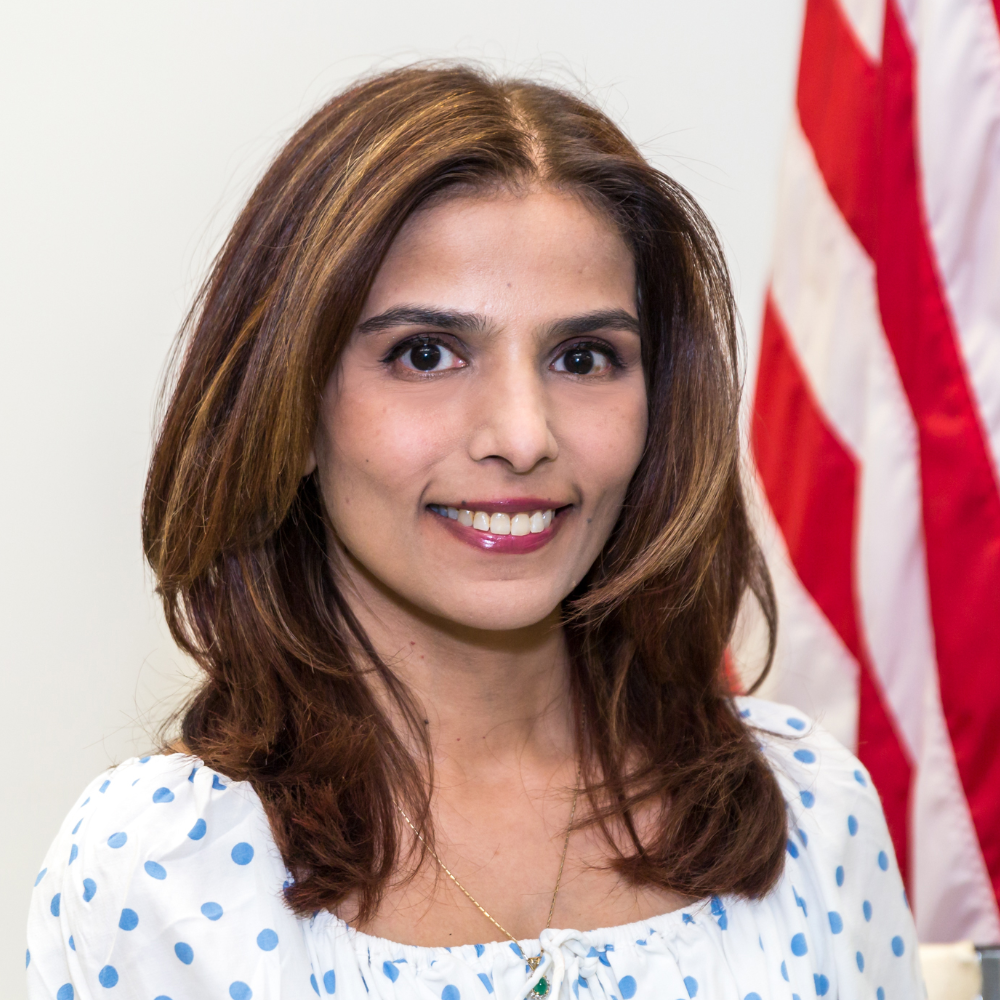
Tina Malhotra
Incumbent
• Chair, Ridgefield Board of Education, since 2022, member since 2020
• 4+ years managing events, volunteers & community engagement, Ann’s Place
• President, Ridgefield Lion’s Heart
• Board Member, Ridgefield A Better Chance (ABC)
• Board Member, SOAR Together
• Member, Ridgefield Rotary Club, Ridgefield Youth Commission & Ridgefield Community Coalition Against Substance Abuse
• 13-year Ridgefield resident & parent of
a Ridgefield graduate
• BA, St. Stephen’s College, New Delhi, India
• MBA, London School of Economics
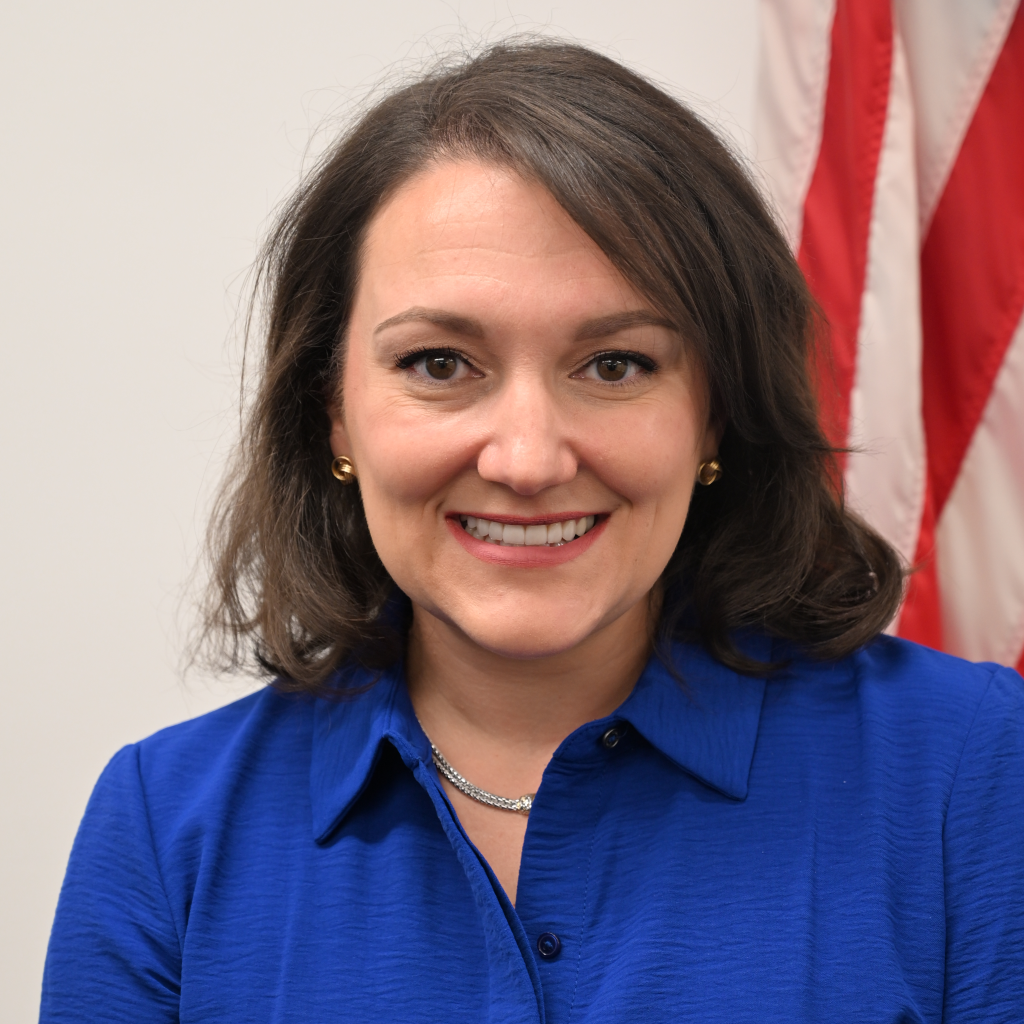
Kathryn Graf
• 11+ years as Certified Public Accountant
• Audit Manager of Fortune 500 companies at Ernst & Young
• Director of technical accounting and financial compliance teams
• Manager of payroll & equity compensation programs
• Volunteer coach, SCOR
• Moved to Ridgefield in 2023, parent of two children (one current & one future
RPS student)
• Advocate for transparency and responsible spending
• BS & MAS, University of Illinois Urbana-Champaign
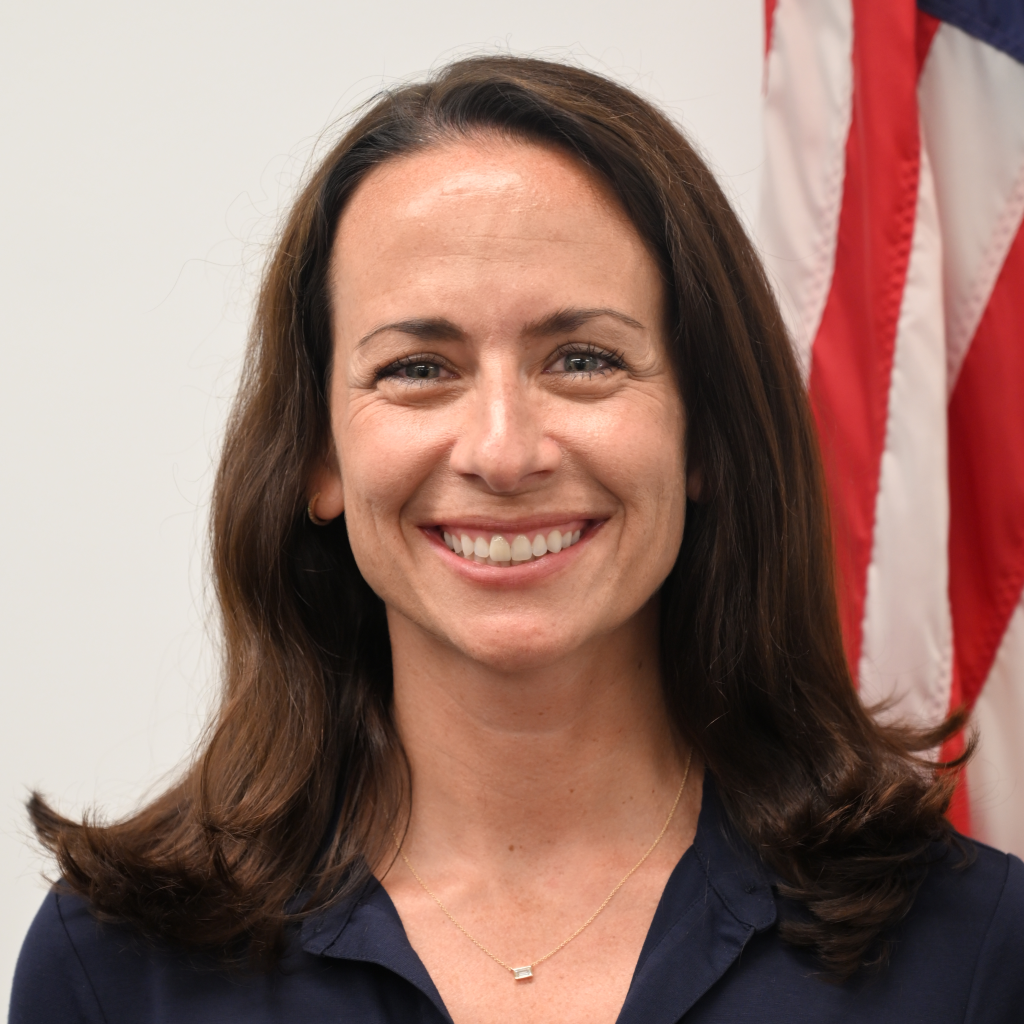
Angela Rice
• 14+ years as teacher and administrator in public, charter, and independent schools
• AP English teacher, Dwight Global Online School
• Former Co-President,
Ridgefield Joint Council of PTAs
• Former Co-President, Branchville PTA
& Co-Founder, BES PTA DEIB Committee
• Former New York City Teaching Fellow, licensed educator in New York and California
• 10-year Ridgefield resident & parent of
two RPS students
• BA, University of Rochester
• MA, City University of New York
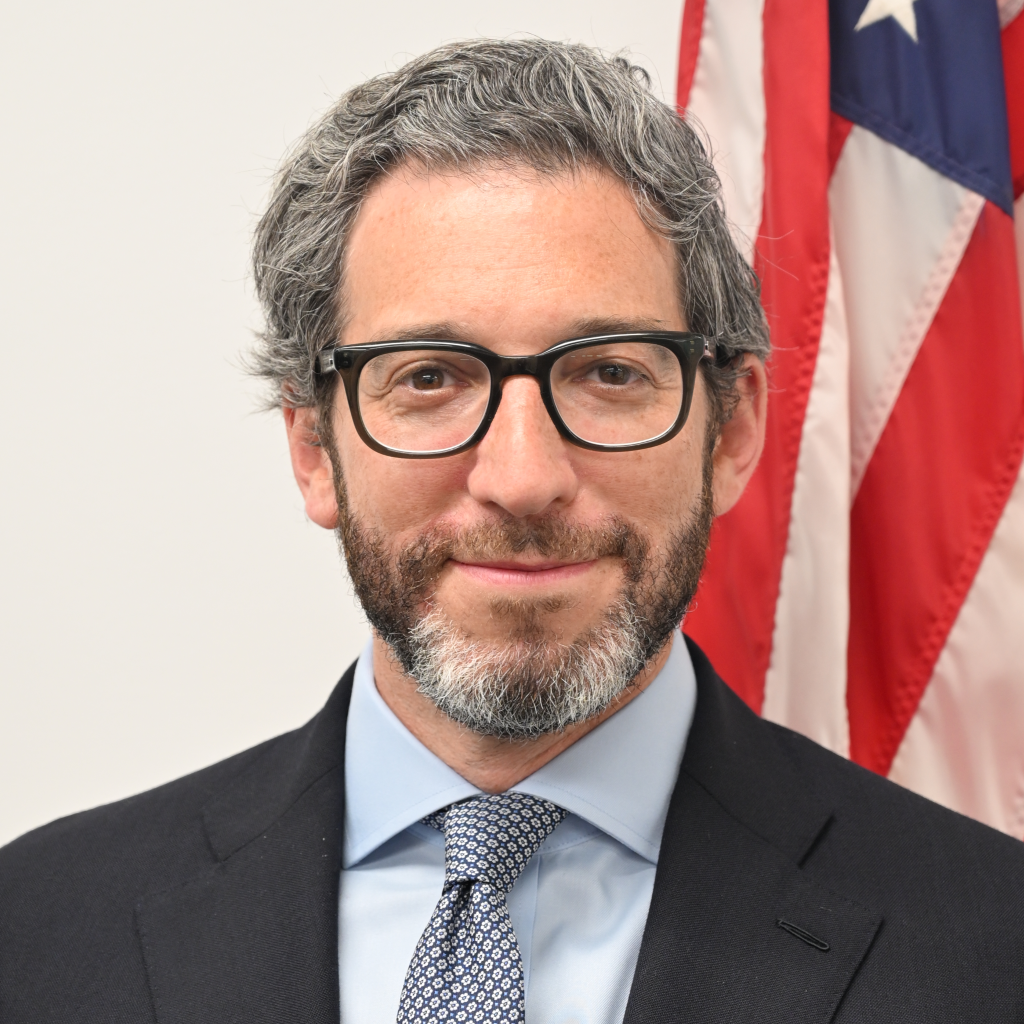
Scott Sigel
• CEO, Helium Foundation, a non-profit supporting wireless connectivity for all
• 10+ years executive experience scaling venture-backed companies
• Education advocate, member & mentor, Year Up United, a national education non-profit
• Mentor, Techstars, advising startup founders
• 5+ years, coach and youth mentor, Row New York
• Moved to Ridgefield in 2024, parent of two children (one current & one future RPS student)
• BA, George Washington University
Board of finance
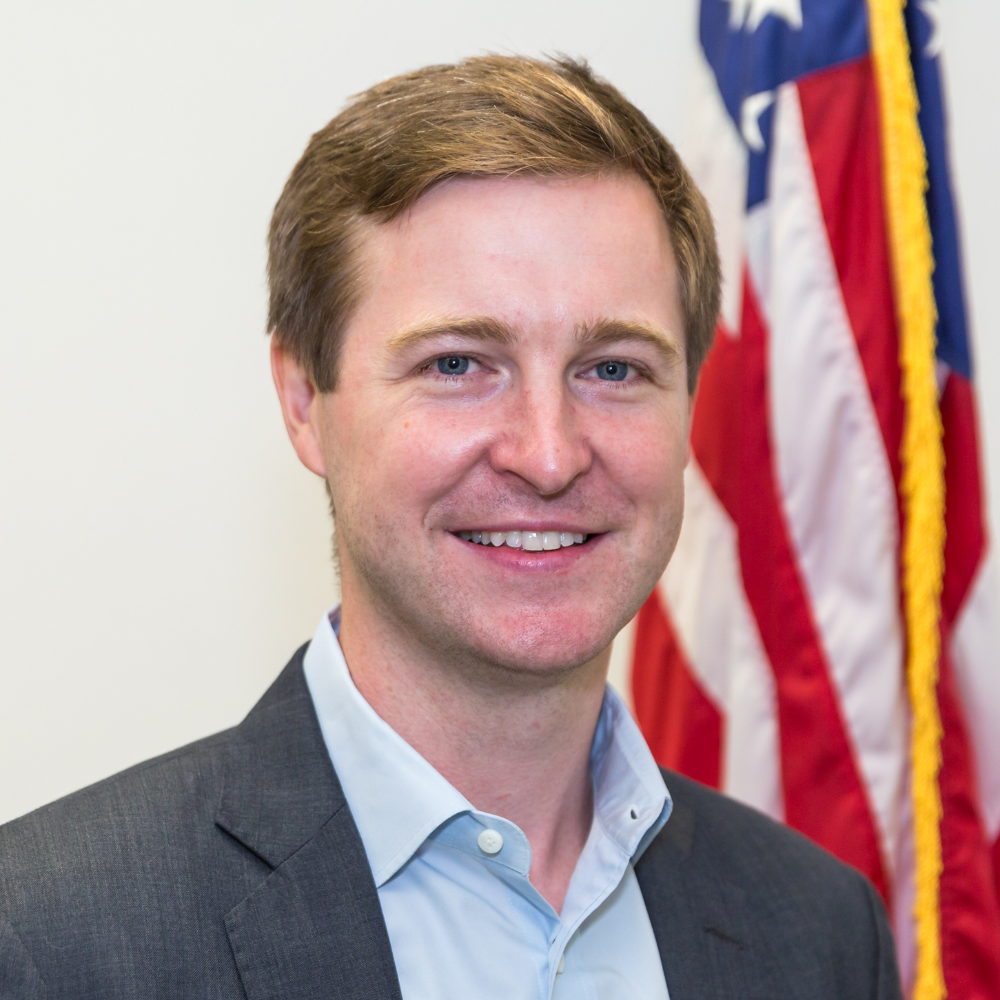
Andrew Okrongly
Incumbent
• Board of Finance member since 2021
• 14+ years as financial services professional & CFA
• Skilled in financial risk management, investments & analytics
• Member, Ridgefield Pension Commission & Senior Tax Credit Committee
• Ridgefield native raising three children
• BBA, University of Michigan Ross
School of Business
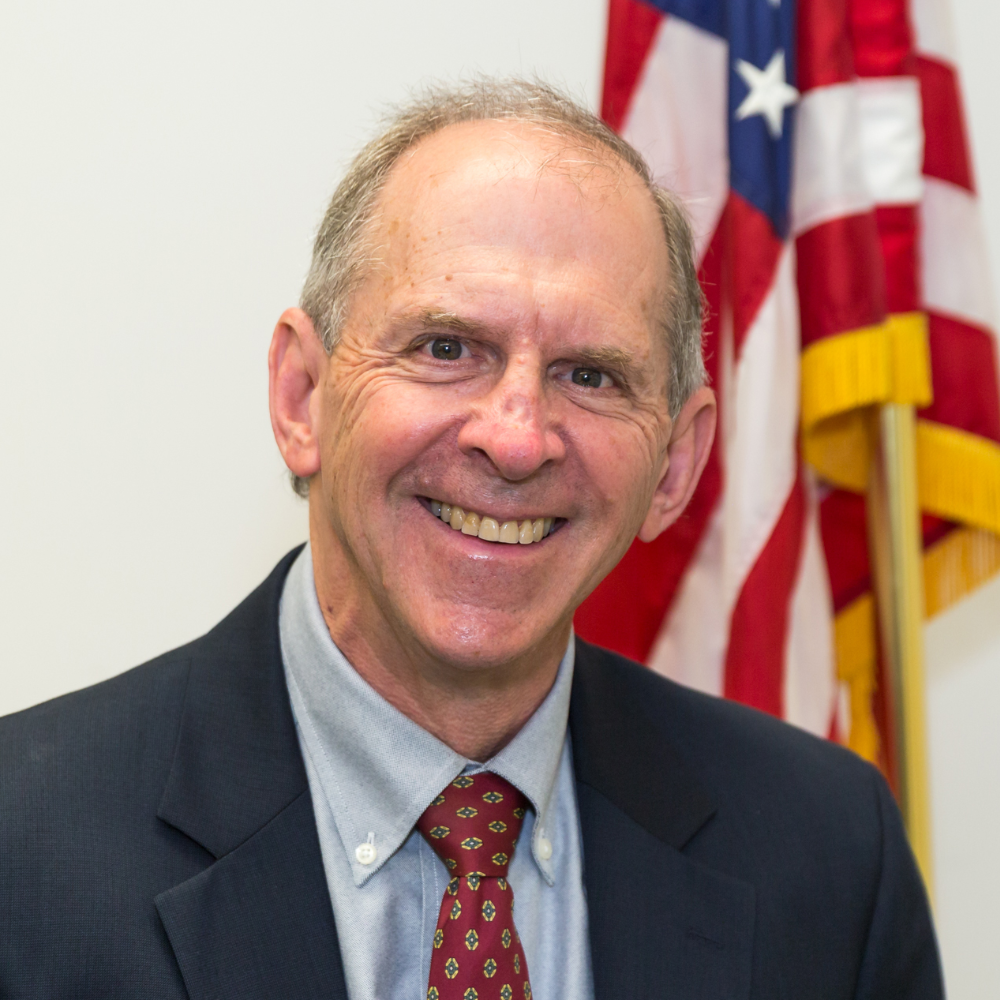
Mike Rettger
Incumbent
• Chair, Board of Finance since 2025, member since 2019
• Retired 30+ year financial services executive
• Member, Charter Revision Commission (2023) & Form of Government Committee (2025)
• 33-year Ridgefield resident
• BA, Michigan State
• MS, Cornell University
• CFA (retired)
Inland Wetlands Board
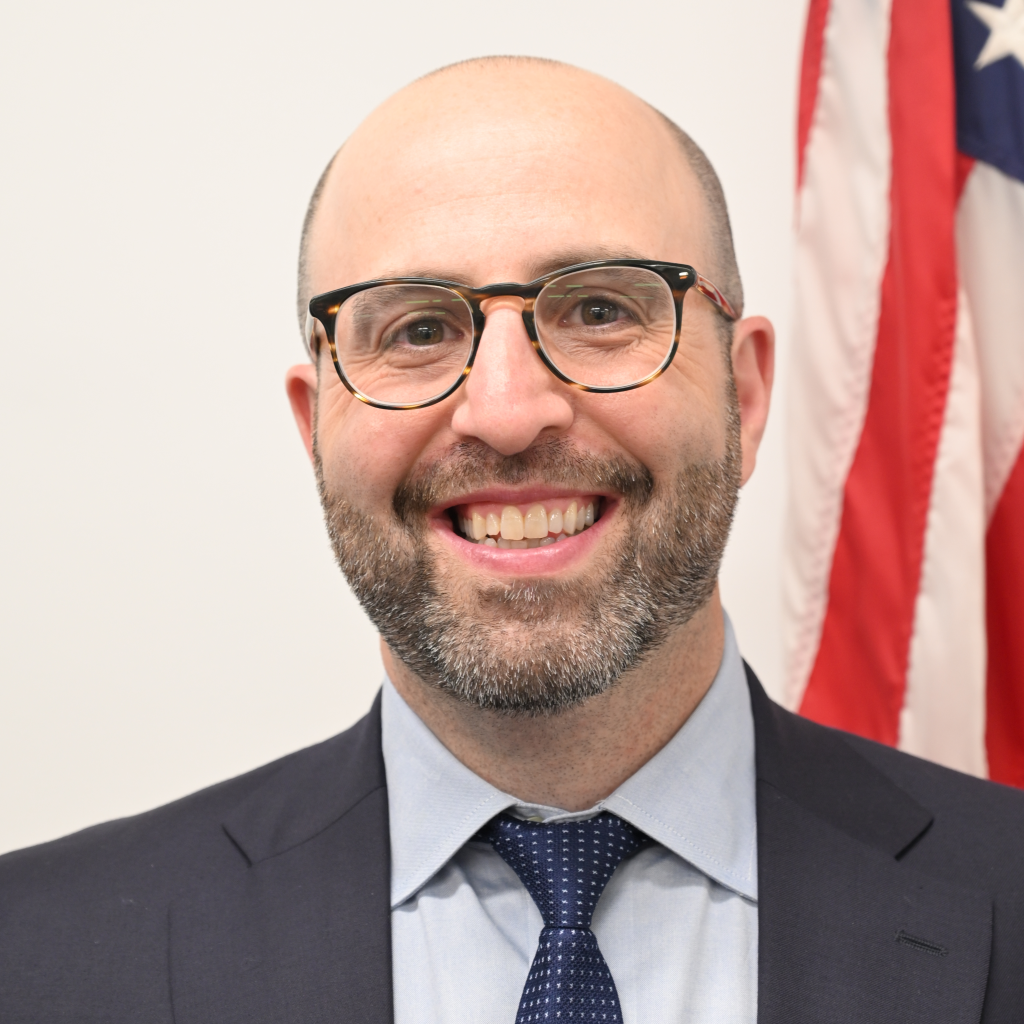
Noah Berkowicz
Incumbent
• Inland Wetlands Board member
since 2025
• 18+ years as Executive Recruitment & Talent Acquisition leader
• Passionate conservationist
• Volunteer coach, SCOR
• 3-year resident and parent of
two RPS students
• BA, Marist University
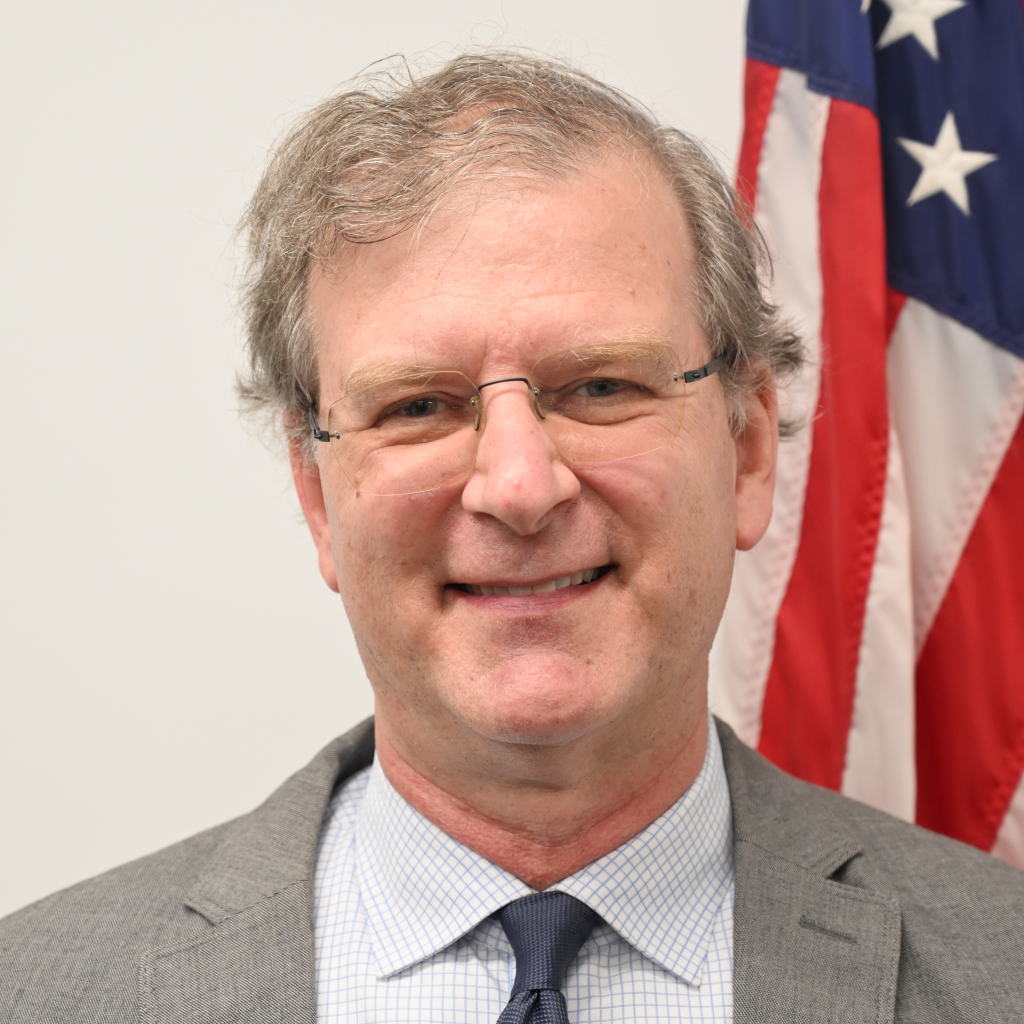
Keith Carlson
Incumbent
• Inland Wetlands Board member since 2024
• Owner, Carlson Architects in Ridgefield
• 25+ year professional in UX design, information architecture & product management
• Former consultant, Department of Homeland Security
• Former professor, Pratt Institute & California State University, Long Beach
• Ridgefield resident since 2021
• BA, Pratt Institute
• MA, Southern California Institute of Architecture
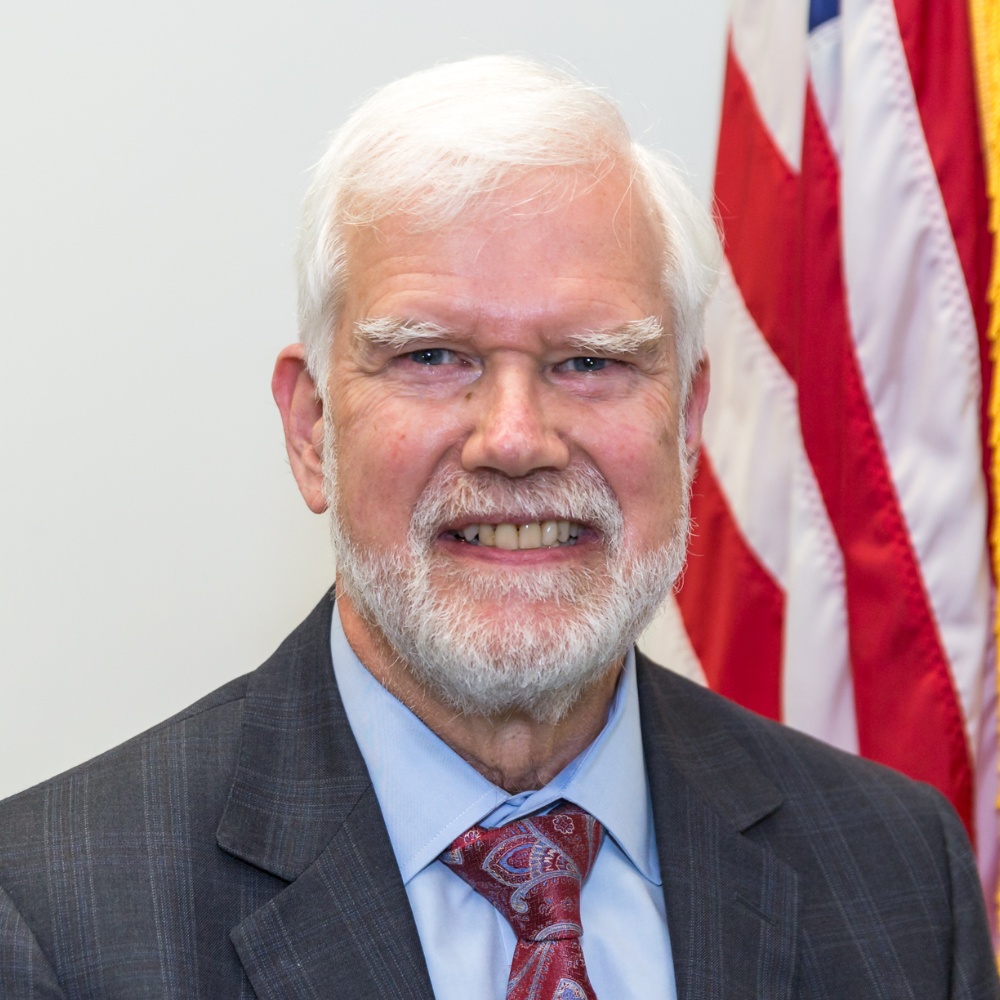
David L. Smith
Incumbent
• Inland Wetlands Board member since 2021
• Chief Strategic Planning Officer,
Garnet Health
• Former Park Ranger & passionate conservationist
• 45 years as a healthcare professional
• 23-year Ridgefield resident
• BA, Penn State
• MSPH, University of Missouri
Police Commission
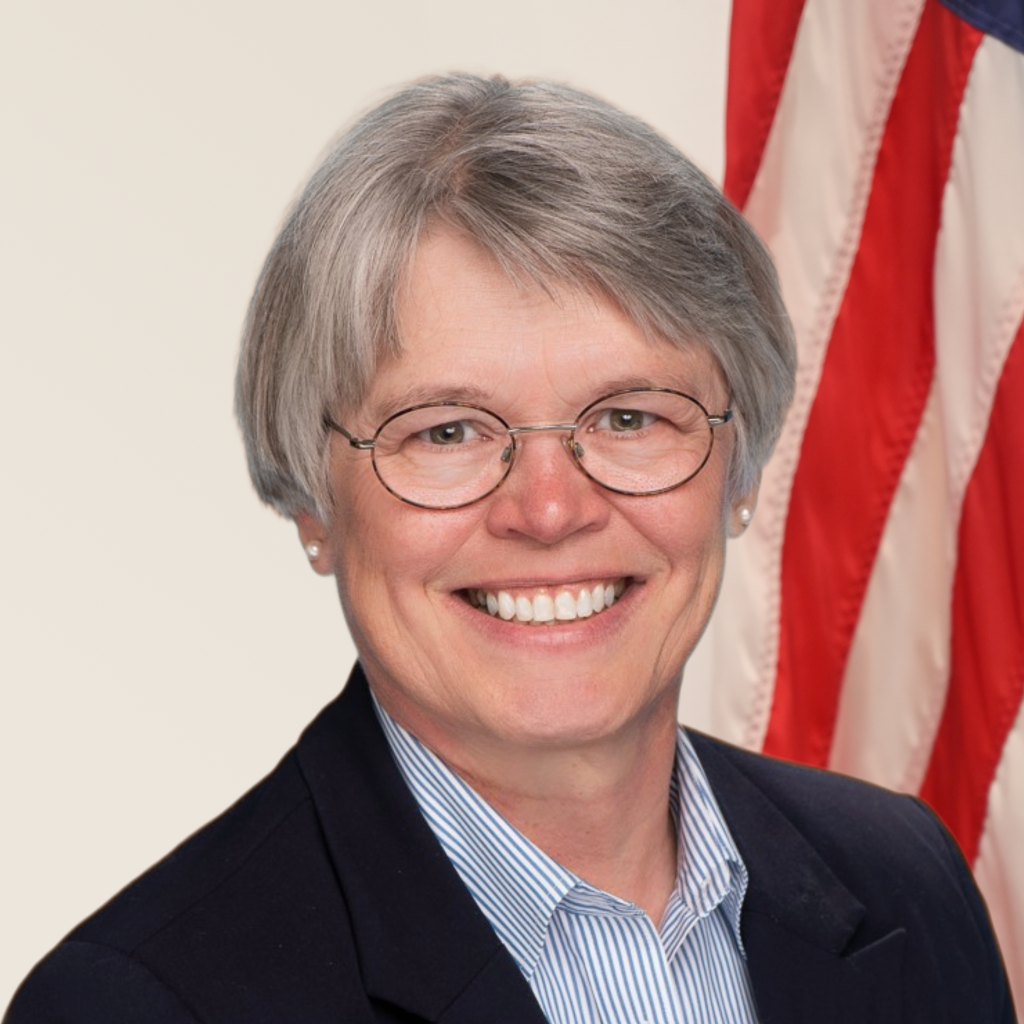
Sharon Wicks Dornfeld
Incumbent
• Chair, Ridgefield Board of Police Commissioners since 2023, member since 2021
• 40 years in practice as a child advocacy attorney
• Adjunct professor, Quinnipiac University School of Law
• Town Meeting moderator and member, Juvenile Review Board
• 40-year Ridgefield resident
• AB, University of Michigan
• JD, University of Michigan Law School
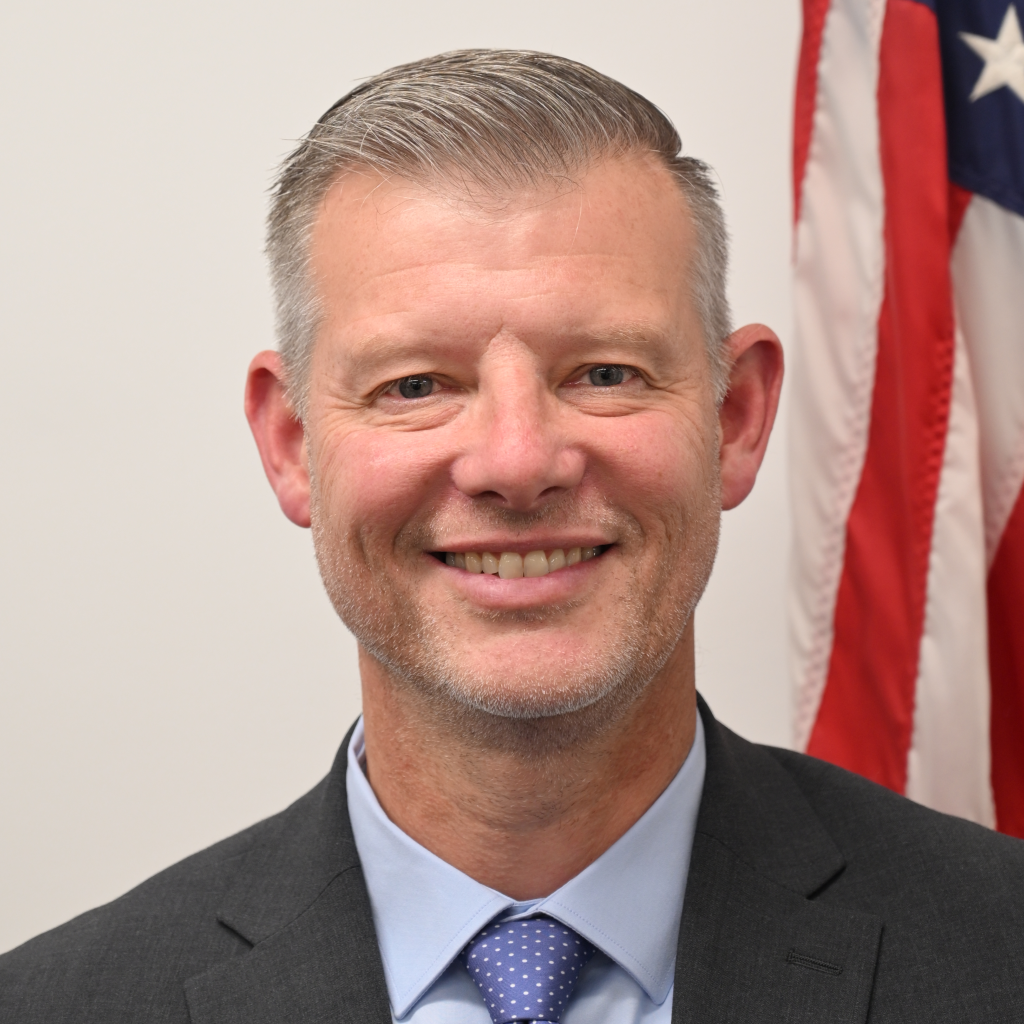
Stephen Riebling
• Partner, Riebling & Payton, PLLC
• 28 years in practice as criminal defense & family law attorney
• 10+ years as Super Lawyer awardee
• New York Times Top Attorney in NY Metro Area
• Avvo Client’s Choice Attorney in Criminal Law
• National Best-Selling Co-Author on Amazon (A Cup of Coffee with 10 of the Top Criminal Defense Attorneys in the United States)
• Freshman football coach for Ridgefield High School
• 21-year Ridgefield resident
• BSBA, University of Richmond
• JD, Pace Law School
Planning and Zoning Commission

Elizabeth DiSalvo
Incumbent
• P&Z Commissioner since 2021
• 20+ year owner of Ridgefield-based Trillium Architects, specializing in green construction
• Award-winning professional Architect
(2x Best Energy Efficient House in America & Best Emerging Firm in CT from the AIA)
• Board member, CT Green Building Council
• Former member, Ridgefield Action Committee for the Environment (RACE), Historic District Commission, Energy Task Force & Affordable Housing Committee
• Ridgefield native
• BA, Rensselaer Polytechnic Institute
• MA, Columbia University
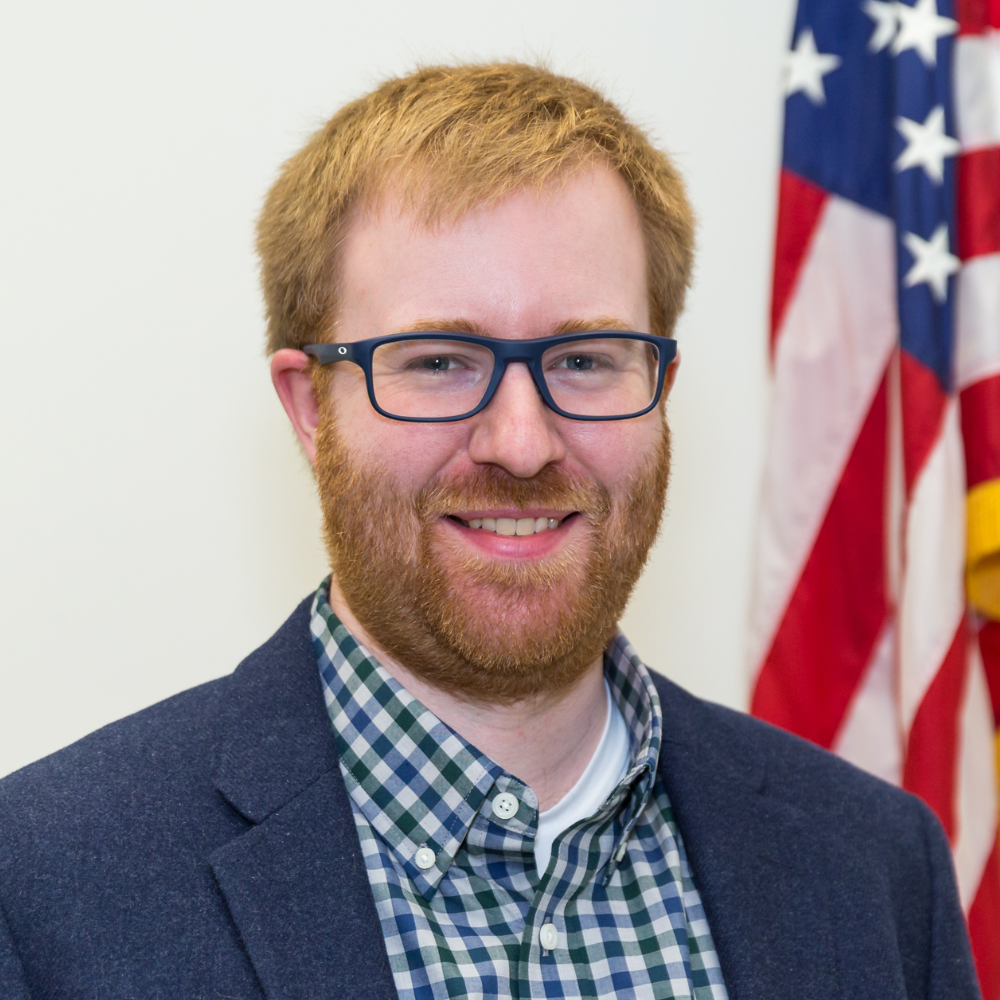
Joe Dowdell
Incumbent
• P&Z Commissioner since 2017
• P&Z Vice Chair from 2021 to 2024
• 14+ years in electrical engineering roles, with 7+ years in semiconductor industry
• Contributor to 2020 POCD,
Inclusionary Zoning & Renewable
Energy Systems Regulations
• Member, Ridgefield CERT
• 11-year Ridgefield resident
• Bachelor of Electrical Engineering, University of Minnesota
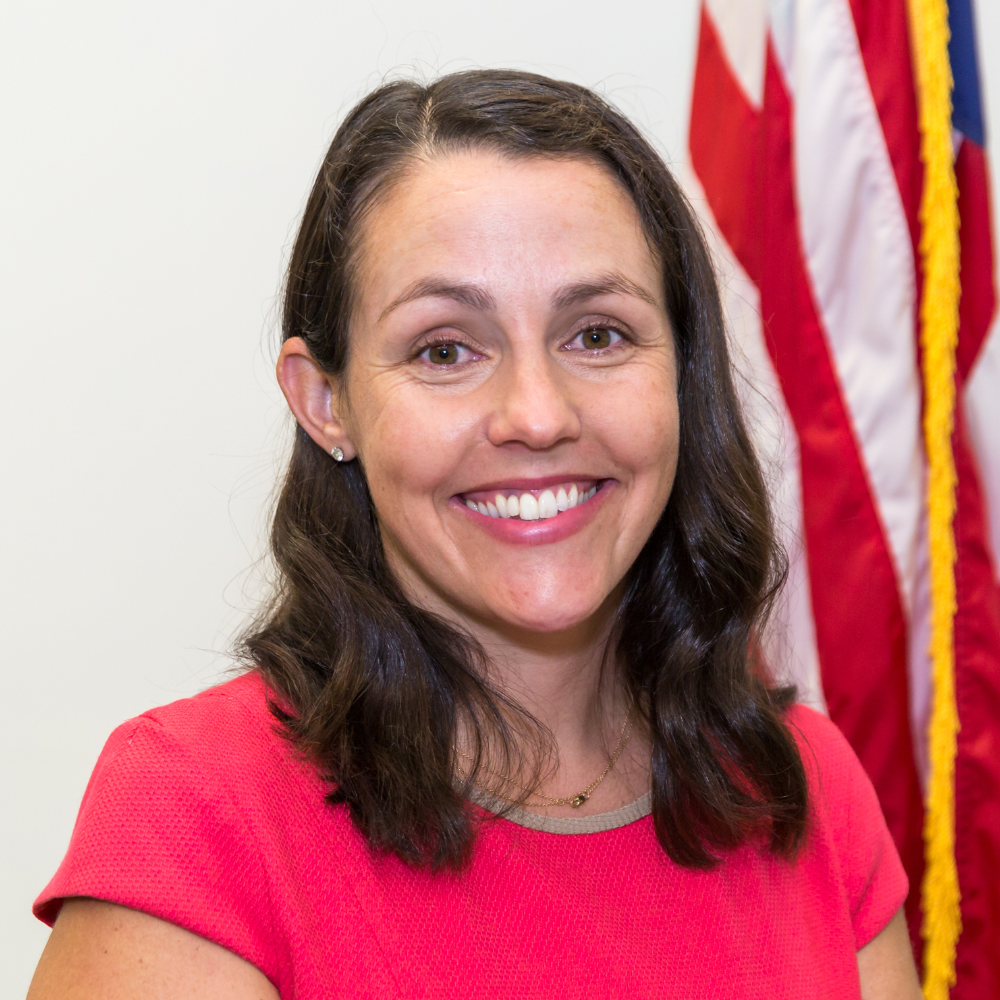
Mariah Hutchings Okrongly
Incumbent
• Vice-Chair, P&Z since 2024,
Commissioner since 2021
• Executive Director, Bedford 2030, a local grassroots environmental organization
• 15+ years as an operational
project management & finance professional
• Ridgefield native raising three children
• 2005 RHS graduate
• BA, Boston College
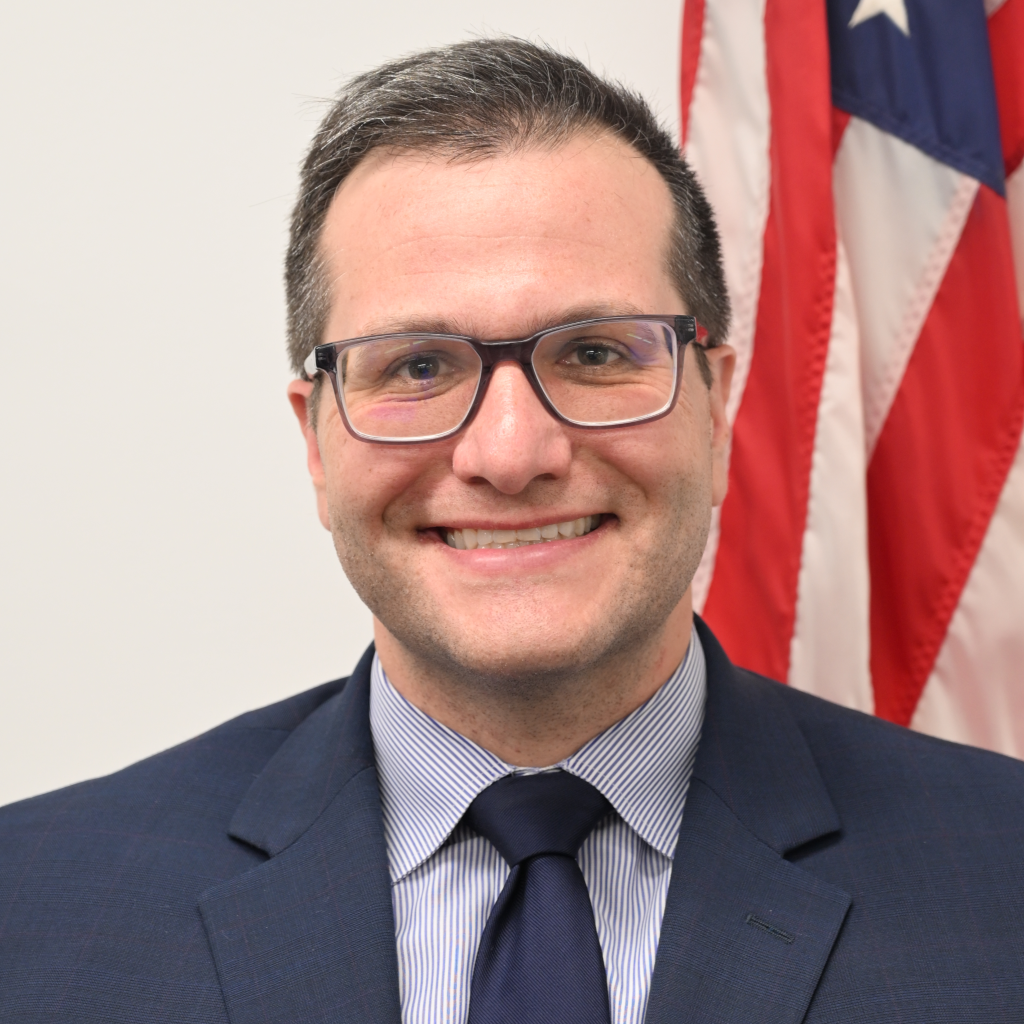
Benjamin Nissim
Incumbent
• P&Z Commissioner since 2024
• Managing Assistant General Counsel to a CT-based corporation
• 10+ years legal practice in commercial litigation
• Former member, Inland Wetlands Board
• Former alternate member,
Conservation Commission
• Member, CT Judicial Branch Access to Justice Commission
• Ridgefield resident since 2018
• BA, Wesleyan University
• JD, Notre Dame Law School
Zoning Board of Appeals
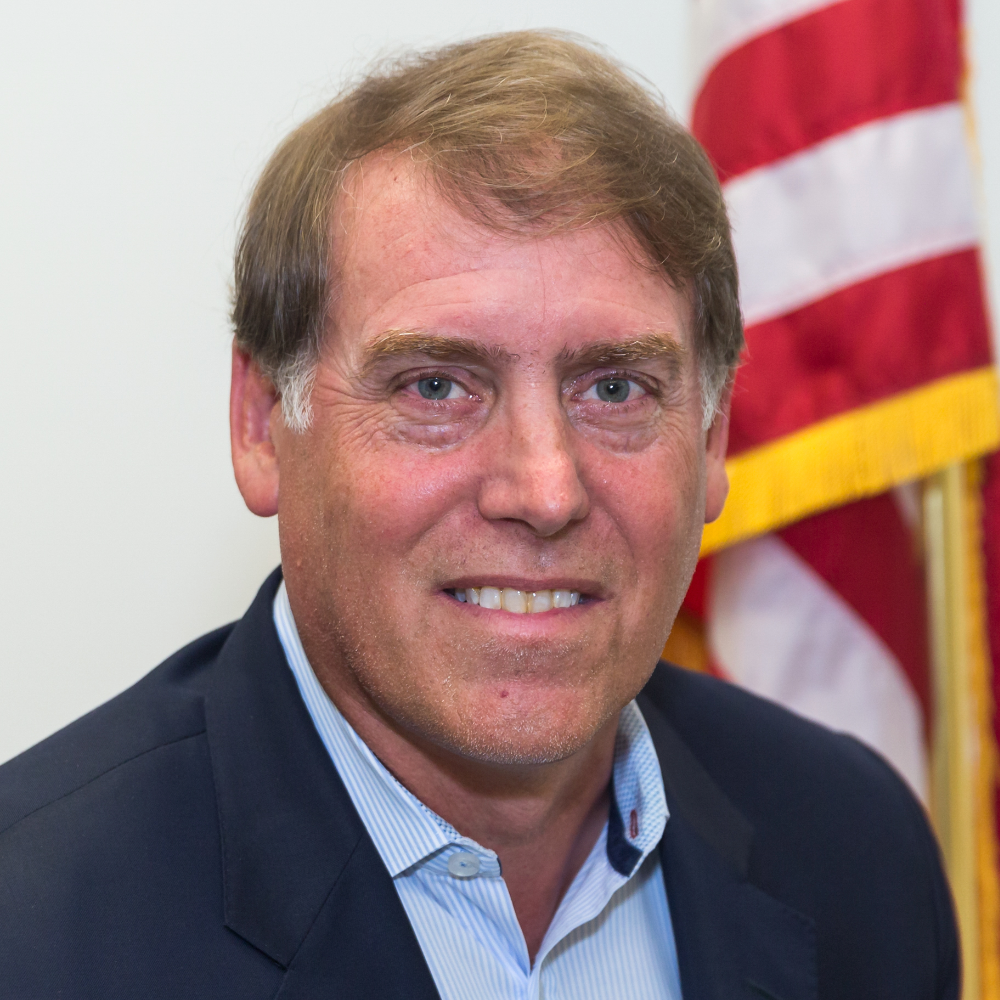
Joseph M. Pastore III
Incumbent
• Zoning Board of Appeals member since 2019
• Former Board of Assessment Appeals member
• Managing Partner, Pastore & Dailey, LLC
• Committed to town growth that maintains Ridgefield’s historic & architectural integrity
• 30-year Ridgefield resident
• BA, Bucknell University
• JD, Pace Law School
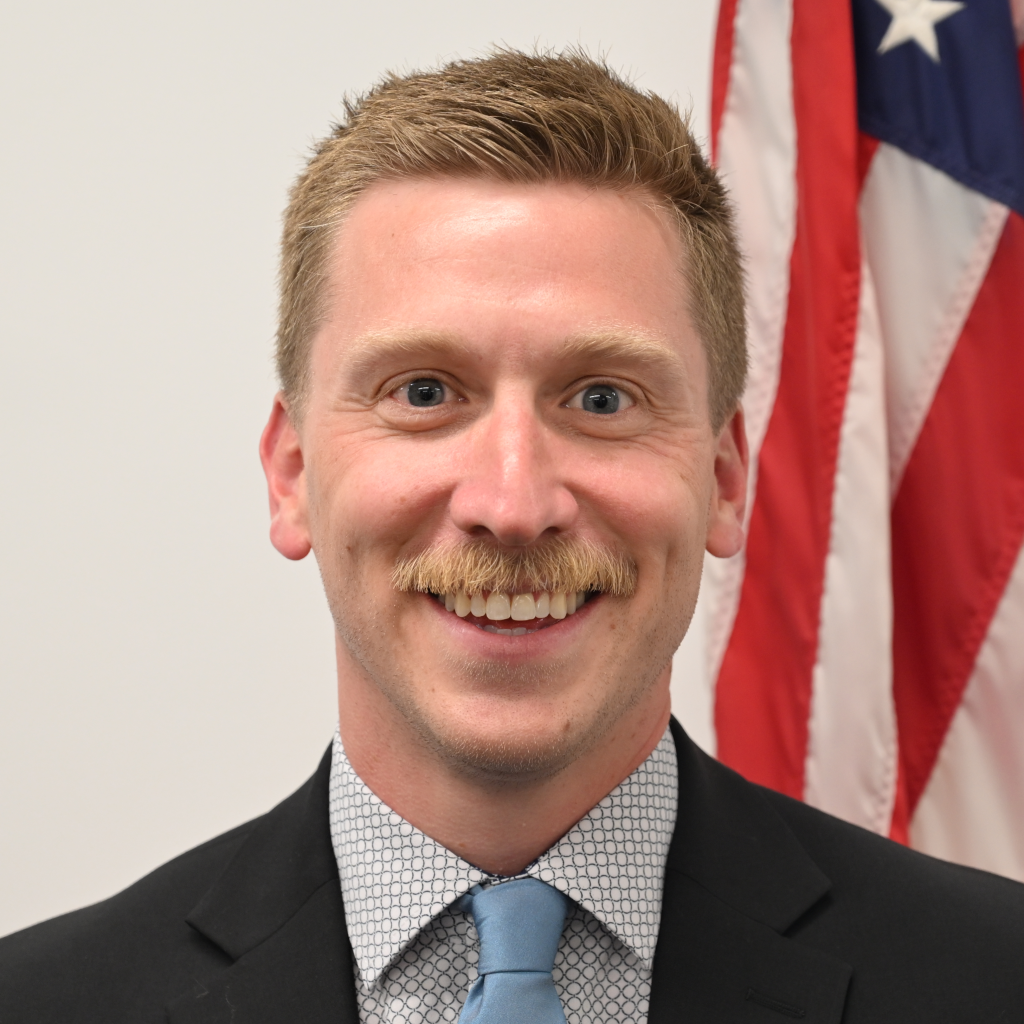
Mike Santini
Alternate
• Founder, Hatrack Consulting, advising
non-profits and philanthropists
• 15+ years experience in the non-profit sector
• Former Executive Director, Prospector Theater
• Board Member, Prospector Theater, Ridgefield Youth Football & Cheer,
CT Farmers Market Association
• Ridgefield native raising young family
• BA, University of Maryland
Board of Assessment Appeals
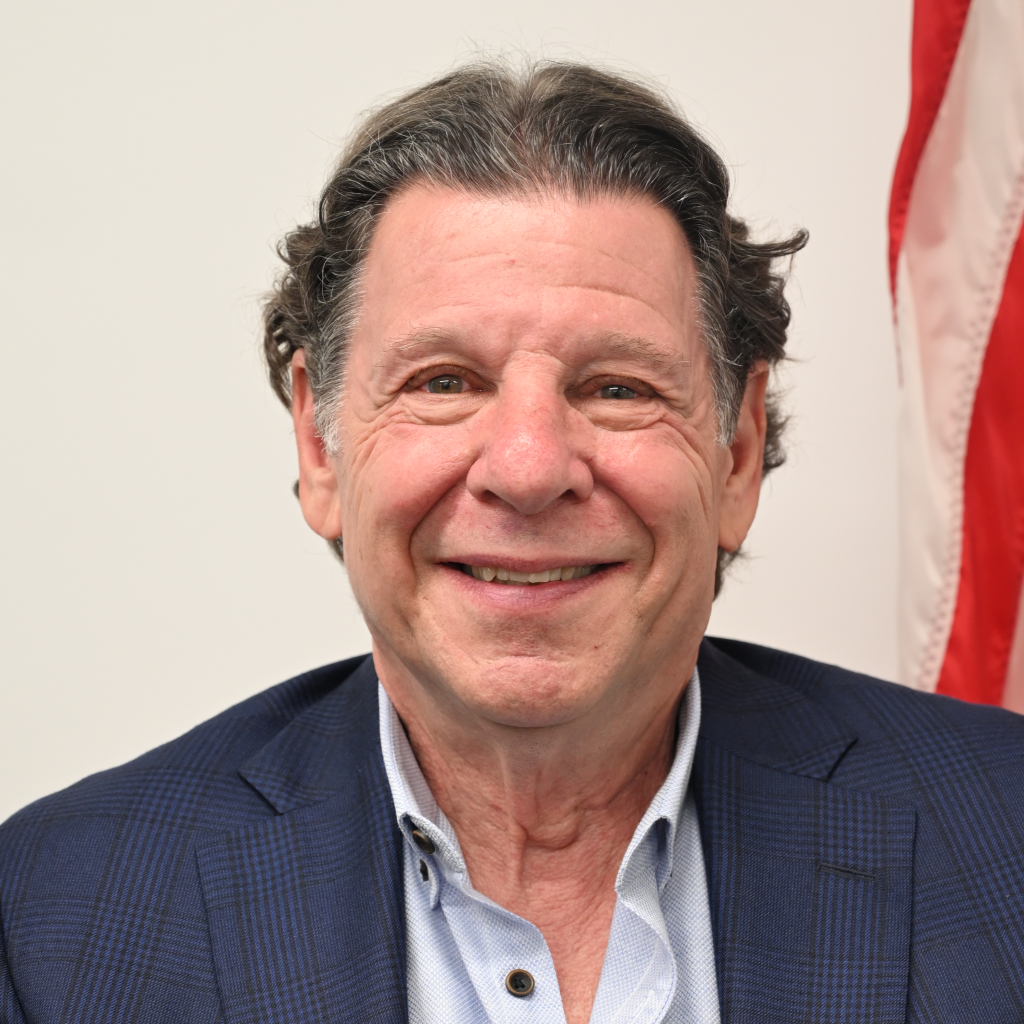
Andrew Sternlieb
Incumbent
• Board of Assessment Appeals member since 2024
• Founder, Salem Realty Capital, providing mortgage brokerage and capital markets advisory services
• 40+ year career in real estate investment banking, mortgage brokerage and investment sales
• Ridgefield resident since 2023
• BA, University of Rochester
• JD, Emory University
• MA in Education Policy, Teachers College, Columbia University